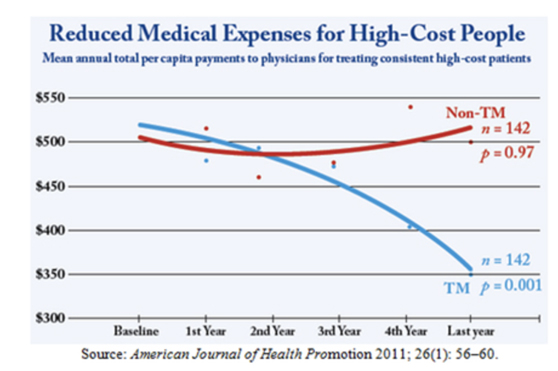Celebrities, Fortune 500 CEOs, physicians and Silicon Valley billionaires have rhapsodized on how the Transcendental Meditation technique is one of their most effective tools for health, personal performance and well-being.
According to a recent Mental Health Commissions of Canada report1, 53.2 % of those Canadians who suffer from mental health problems are women. While women make up nearly half of the workforce in Canada, they are more likely to use health service for mental health problems than men.

Did you know that in Canada, women are more likely than men to use mental health services for mental illness, especially those between the ages of 25-392?
Mental illness broadly costs the Canadian economy more than 50-billion and Canadian business loses 6-billion annually as a result of lost productivity, absenteeism and turnover.
Corporate programs or insurance plans that help address prevention and early intervention may help improve productivity levels and reduce absenteeism and disability claims associated with mental health disorders. Employers can assist employees with mental illness by providing robust resources that address mental health.
The Transcendental Meditation technique, given that is is a cost-effective, non-invasive stress management tool, should be a covered benefit.

TM practice: The biggest bang for the buck
TM prevents stress so that people can maintain day-to-day functioning and experience full, meaningful lives. TM allows the body to maintain a more rested and energetic style of functioning even outside of meditation, making us more resilient to stress.
The largest and quickest reductions in medical costs could be achieved by providing the TM program to consistent high-cost people. The chart below shows a 28% reduction in doctors bills over a five year period for persistent high-cost people who practised the TM technique.
More than 240 articles have been published in peer-reviewed scientific journals showing that the TM technique improves mental and physical health. Many of these studies were randomized clinical trials and meta-analyses. Several randomized clinical trials were funded by the National Institutes of Health in the United States to examine the impact of TM on cardiovascular health. Benefits of TM

Mental illness has reached a chronic epidemic. TM is an evidence-based wellness technique that has demonstrated it is cost effective for Canadians.
Références:

